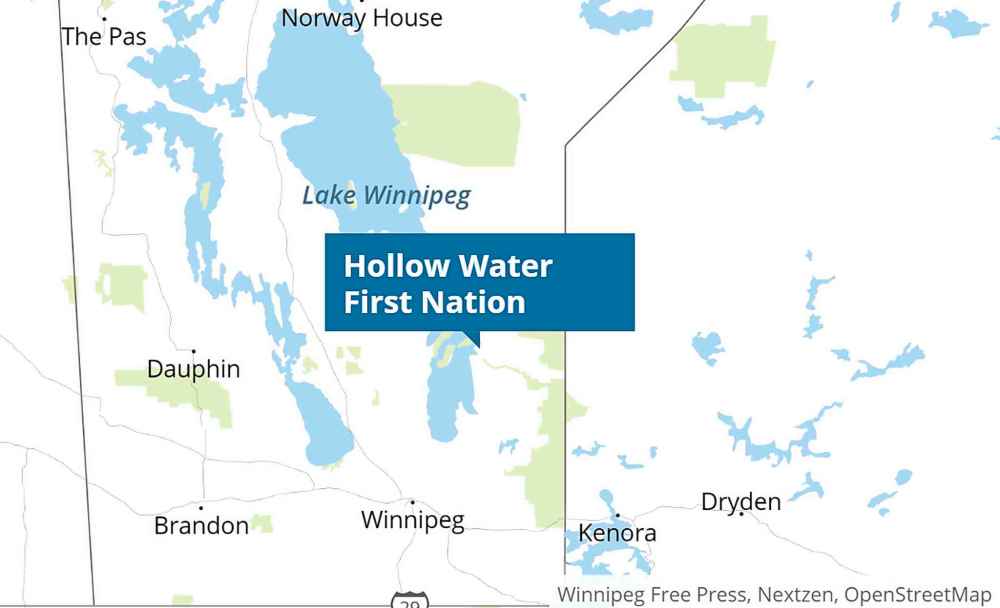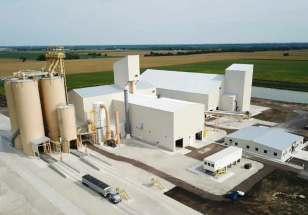Eastern Manitoba mine proposal awash in contradictions
Read this article for free:
or
Already have an account? Log in here »
To continue reading, please subscribe:
Monthly Digital Subscription
$1 per week for 24 weeks*
- Enjoy unlimited reading on winnipegfreepress.com
- Read the E-Edition, our digital replica newspaper
- Access News Break, our award-winning app
- Play interactive puzzles
*Billed as $4 plus GST every four weeks. Offer only available to new and qualified returning subscribers. Cancel any time.
Read unlimited articles for free today:
or
Already have an account? Log in here »
Hey there, time traveller!
This article was published 14/02/2019 (2206 days ago), so information in it may no longer be current.
Everyone knows you don’t get between Winnipeggers and their cabins.
Maybe that’s why much of the talk surrounding the potential opening of a frac-sand mine in eastern Manitoba has revolved around increased truck traffic on the already-busy Highway 59, the main route from the city to popular cottage destinations such as Grand and Victoria beaches.
Canadian Premium Sand, which wants to build a $110-million sand extraction and cleaning plant near Hollow Water First Nation, claims the traffic will amount to fewer than 100 trucks running 24-7 to and from Winnipeg, but there’s no question the provincial government will have to invest in upgrading Highway 304, which cannot sustain heavy truck traffic in its current condition.
There are also the 14 kilometres of untwinned highway between Beaconia and Scanterbury, which is already a dangerous zone; adding substantially to the flow of traffic to and from cottage country only adds to the potential for collisions.
However, worrying about weekend commuters who are too impatient to travel under the speed limit for a few kilometres feels a bit like NIMBY-ism in the face of larger issues surrounding the mine.

First, there’s the environmental concern. Though the open-pit mine proposed by Canadian Premium Sand is less destructive than the dredging of rivers and lakes that takes place at sand mines elsewhere, one would hope to see extensive studies on the effect on the unique lakeside ecosystem of removing acres of soil and vegetation, however temporarily, before the project is approved.
There’s no question employment opportunities in and around Hollow Water are a good thing. But it’s hard to escape the irony of the situation: a First Nations community eagerly welcoming a mining company whose product will directly support environmentally destructive fracking operations, which have had a deleterious effect on First Nations communities and water supplies in British Columbia and Alberta, and which inspired a violent clash between Mi’kmaq protesters and RCMP in New Brunswick.
It’s also a boon to have the company pledge to bring in high-speed internet and make emergency services available once again in nearby Bissett. But it’s also difficult to ignore the folly inherent in investing too much money or hope in a volatile industry that — much like the Pine Falls paper mill and the Bissett gold mine before it — has a built-in expiration date, an industry built on exploiting a non-renewable resource.
Although Canadian Premium Sand predicts there’s enough sand — silica with uniquely strong, rounded grains in high demand for hydraulic fracking operations — in the 37-acre deposit to keep a mine operating for 50 years, supply-and-demand patterns aren’t so easily predicted.
When oil prices plummeted, fracking mines across North America began using inferior-quality sand from areas near the mining operations, called in-basin sand, to cut the enormous costs of transporting frac sand from the Midwest. Though prices have rebounded, companies are increasingly investing in in-basin options; industry publications widely predict a decreased need for high-quality frac sand from areas that are remote to drilling sites.
The increasingly distressed community of Powerview-Pine Falls, plagued by crime and poverty, is a testament to what can happen when a town is reliant on a single industry for its fortunes. When that industry pulls up stakes — either because it runs out of resources or isn’t as profitable as it would like — the benefits it once bestowed become as insubstantial as a castle made of sand.










